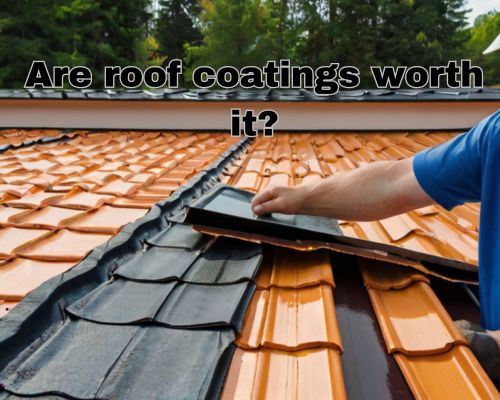Shingling a roof is one of the most important investments homeowners can make to protect their property from the elements while enhancing its aesthetic appeal. If you’re in New Jersey and wondering, “How much does it cost to shingle a 1000 sq ft roof?” this guide provides a detailed breakdown of costs, factors influencing prices, and helpful tips to make an informed decision.

Average Cost of Shingling a 1000 sq ft Roof in New Jersey
In New Jersey, the average cost to shingle a 1000 sq ft roof ranges from $4,500 to $8,500, depending on various factors such as the type of shingles, labor charges, and roof complexity. On average, homeowners can expect to pay around $5 to $8 per square foot for asphalt shingles, which are the most common roofing material in the state.
Below is a quick cost breakdown for different types of shingles:
- Asphalt Shingles: $5,000 to $7,000
- Architectural Shingles: $6,000 to $9,000
- Metal Shingles: $8,000 to $14,000
- Wood Shingles: $7,000 to $12,000
- Slate Shingles: $10,000 to $20,000
CJ Commercial Roofing NJ highlights that each type of shingle comes with unique features and durability, which can impact your total roofing costs.
Factors Influencing Roof Shingling Costs in New Jersey
Several factors can influence the total cost of shingling a 1000 sq ft roof. Here’s what to consider:
1. Type of Shingles
The material you choose significantly affects the cost. While asphalt shingles are budget-friendly and durable, premium materials like slate or metal shingles are more expensive but offer longer lifespans and aesthetic appeal.
2. Labor Costs
Labor costs in New Jersey typically range between $50 and $75 per hour, depending on the roofing contractor’s expertise and reputation. Roofing professionals in urban areas like Newark or Jersey City may charge slightly more than those in smaller towns like Toms River or Cape May. For an affordable costing, you may go and visit CJ Commercial Roofing NJ.
3. Roof Complexity
The design and slope of your roof play a significant role in pricing. A simple, flat roof is easier and cheaper to shingle compared to a steep or multi-level roof that requires additional safety measures and time.
4. Permits and Inspections
In New Jersey, homeowners often need permits to replace or install a new roof. Permit costs vary by municipality but typically range from $100 to $400. Additionally, local inspections may add to the overall cost.
5. Weather Conditions
New Jersey’s diverse climate can impact roofing costs. Contractors may charge more during winter or rainy seasons due to challenging working conditions. Spring and fall are ideal seasons for roofing projects due to mild weather.
Breaking Down Costs: Materials, Labor, and Extras
Materials
For a 1000 sq ft roof, expect to pay around $2,000 to $6,000 for shingles, underlayment, and nails. Upgrading to energy-efficient or weather-resistant shingles may increase costs but can offer long-term savings on utility bills.
Labor
Labor charges generally account for 50% to 60% of the total project cost. For a 1000 sq ft roof, this translates to approximately $2,000 to $4,500.
Extras
Additional expenses include:
- Tear-Off Costs: Removing old shingles adds $1,000 to $2,000.
- Roof Deck Repairs: Any necessary repairs can cost $500 to $1,500, depending on damage severity.
- Disposal Fees: Disposing of old roofing materials may add $300 to $600.
Popular Roofing Contractors in New Jersey
To ensure quality work, it’s essential to hire a reliable roofing contractor. Here are some well-reviewed options in New Jersey:
- All Seasons Roofing & Siding (Cherry Hill): Known for competitive pricing and excellent customer service.
- Premier Roofing Services (Middletown): Specializes in residential roofing and offers free estimates.
- Roof Plus (Wall Township): Offers premium materials and warranties for peace of mind.
When hiring, always request multiple quotes to compare pricing and services.
Local Roofing Trends in New Jersey
1. Asphalt Shingles Dominate
Due to their affordability and durability, asphalt shingles remain the most popular choice among New Jersey homeowners. They are ideal for withstanding the state’s diverse weather conditions, including heavy snow and summer heat.
2. Energy-Efficient Roofing
With a growing focus on sustainability, many homeowners are opting for reflective shingles that reduce cooling costs during hot summers.
3. Storm-Resistant Materials
New Jersey frequently experiences storms and high winds. Roofing contractors often recommend impact-resistant shingles that can withstand winds of up to 130 mph, ensuring long-term durability.
Tips for Saving on Roof Shingling Costs in New Jersey
- Schedule During Off-Peak Seasons Contractors are typically less busy in late fall or early winter, which may help you negotiate lower prices.
- Choose Local Contractors Hiring a local contractor can save on transportation fees and ensure compliance with New Jersey’s building codes.
- Invest in Durable Materials While premium shingles may cost more upfront, their extended lifespan and energy efficiency can save money in the long run.
- Bundle Projects If you’re considering other home improvement projects, bundling them with your roofing job can result in discounts.
Conclusion
Shingling a 1000 sq ft roof in New Jersey typically costs between $4,500 and $8,500, depending on factors like materials, labor, and roof complexity. By understanding these cost drivers and exploring options like energy-efficient materials and local contractors, homeowners can make informed decisions that align with their budget and needs.
If you’re ready to take the next step, reach out to reputable roofing contractors in your area for detailed quotes and personalized recommendations. Your roof is a vital part of your home’s structure, and investing wisely will ensure it stands strong for years to come.



